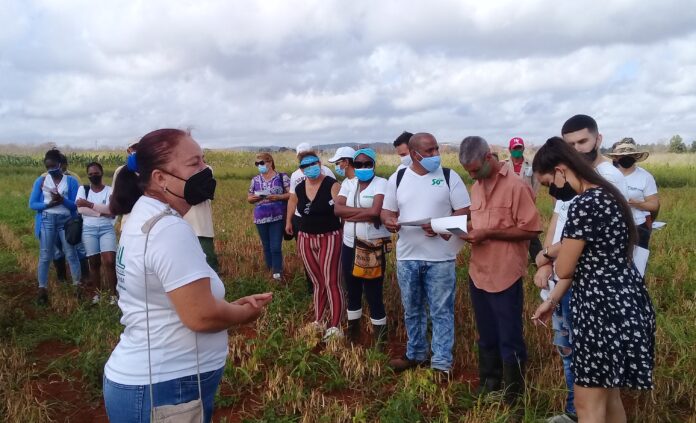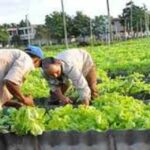Mayabeque, Cuba: Researchers from the National Institute of Agricultural Sciences (INCA) and farmers increase actions in search of efficiency and better results in the fields of Mayabeque and Artemisa to materialize the increase in production in the face of the pressing food demand in Cuba and the world.
An example of this effort was the Grain Diversity Fair, held at the Las Papas Farm in San José de las Lajas and on the INCA grounds, with the participation of researchers, producers and specialists from the two youngest provinces in the country who At the same time, they have ample potential in the field.
In the Grain Diversity Fair, the cultivation of different varieties of beans, destined for seed, was appreciated; There, the participants verified the characteristics of each one in the field to later show their preference for one or the other, according to the lands where they intend to promote planting.
INCA researcher Alexis Lam Piedra, who led the practice in the field, said that the goal is for farmers to understand that there is a wide variety of beans and select them according to their behavior at a given time, such as varieties for planting in the late season and in conditions different from what is traditionally accepted in the cultivation of this product.
In areas of INCA’s experimental crops, the actions were also repeated, but in this case the chickpea and soybean varieties were added; in them the differences of color, size of the plants, foliage and production were evidenced, significant data for those who aspire to plant it in their lands.
In this way, the producers of Mayabeque and Artemisa promote the generalization of advances in agricultural science in the fields to achieve the results that the country demands in food production.
The Ministry of Science, Technology and Environment; the National Association of Small Farmers and the Local Agricultural Innovation Project, promote meetings with producers in the Credit and Services Cooperatives in search of the generalization of the results of agricultural science for higher yields.




